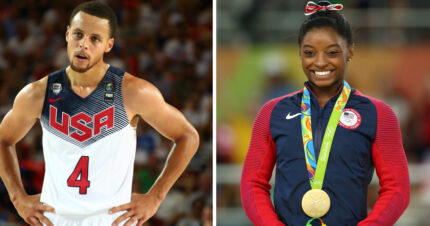Back in 2010, Long Island’s Roc Marciano made his solo debut with the street classic Marcberg. Although entering into the current one man producer/rapper trend, his album stood as a sharp contrast to the overproduced, musically glitzy projects of that year, like Kanye’sMy Beautiful Dark Twisted Fantasy. It even drove in a different lane than the live instrumentation, soul music feel of Black Milk’s Album of the Year. Marcberg had a distinct dark and moody vibe – it was that East coast hood-hip-hop that hadn’t been put to use since the 90s. His, “less is more” style of production set the appropriate backdrop to showcase his complex, compound-syllable rhymes. The album received substantial levels of praise, albeit primarily from a limited audience of fans and fellow artists.
Now, in 2012, we find Roc dropping his second solo effort, Reloaded. The music is an even further move toward isolation than his first project; a truly unique, stand-alone beacon shining above the current environment of regurgitated “hip-pop” trends. Reloaded gives the listener the impression that Roc has been somewhere completely off the grid, with nothing but his 90s sensibilities, his discrete musical ear and imagination, and his drug of choice. While still maintaining the 90s era nostalgia, Reloaded is something that the world has not yet heard. Its music is so simultaneously progressive, and musical, and black, and street, and raw that it will either alienate his bourgeoning cult or garner the wide spread critical acclaim and respect that eluded Marcberg.
Right from the jump, listeners will notice a drastic level of progression in Marciano’s music. Since Marcberg, fans have caught Roc on various guest appearances, including Random Axe’s self-titled album, Gangrene’s Greneberg LP and Ka’s Grief Pedigree. These appearances, in conjunction with the success of his debut, have garnered Roc the coveted “consistently dope” title. Virtually every time you happen to hear Roc, he impresses. Still, this string of success fails to prepare listeners for the artistic leap from Marcberg to Reloaded. To gain perspective, one can compare Marciano’s in-between album elevation to The Roots’ artistic advancement from Do You Want More?!!!??! to Illadelph Halflife. With all respect due to Organix, DYWM was a substantial amount of listeners’ introduction to The Roots. At that time, DYWM was dope emceeing, the music was fresh, and, if you were a fan, you stamped it classic. But Illadelph’s Black Thought is arguably the best emcee of that era and ?uest focused The Roots’ sound to compete with the hip hop elites of the time. Illadelph was just better. Such is the case with Roc and his two albums. This isn’t to say that The Roots and Roc’s initial efforts are no longer classics. But, because the artistic leap in each instance is so profound, the following albums basically force their predecessors into retirement. In a certain sense, they become obsolete. Ever since September 24th 1996, nine times out of 10, I would rather listen to Illadeph than DYWM. The same will be true going forward with Marcberg and Reloaded.
Reloaded is packed with Roc’s signature, witty slick-talk that listeners have become accustomed to. His song content is so consistent that, at a surface glance, it comes across as redundant. However, a deeper look shows that what Roc is able to accomplish is actually somewhat genius. Most often he rhymes colorful, sophisticated syllable-compounds that are lyrically skillful and also provide the listener the opportunity to, “see what he’s saying”. Think Raekwon or Kool G Rap. Yet, despite his heavy use of character development, there is rarely any story in a Marciano song. Instead, he almost exclusively spits depictions of the physical attributes and mental dispositions of his persona Marcberg. “ I’m like Clooney, in ghetto juvi/hold an Uzi, the stone I threw you was a ruby/I move smoothly, roll a doobie in the Jacuzzi/after the movie, she asked to do me, I replied ‘absolutely’.” Most descriptive rappers write songs that serve as scenes, with the cumulative songs/scenes equaling an album/movie. Marciano’s bars are still-shot photographs. His songs are collages, and each album a collection within his portfolio.
The union of these lyrics with street-hop’s most progressive music to date solidifies Reloaded as a sonic gem. The album features production from Q-Tip, Alchemist, Ray West, The Arch Druids and an upgraded Roc Marciano. Even with the array of producers, the sound is still one cohesive project. The music is abstract, rich, and moody. “We Ill,” showcases a melancholy guitar, a wailing voice sample, and Roc’s insightful testimony. “Deeper,” gives a smooth and seductive braggadocio pimp anthem, and “Thug’s Prayer Pt. 2” invokes remorse. However, lyrically all these songs are truly one long stream of consciousness that only change in feel and tempo, never in actual substance. Roc’s success as a songwriter lies in the fact that he always lets the music and sound of his vocals set the tone and theme of the song, despite the fact that, from song to song, his lyrics are literally interchangeable. Think T3 of Slum Village, and by extension, J Dilla.
Reloaded is maybe most impressive in that the music wholly progressive. Where Marcberg was nostalgic, mid 90s, golden era street boom-bap, Reloaded is unchartered, “drumless,” jazz-soul gangster rap. Interestingly, one of Roc’s top 25 albums of all time is D’Angelo’s Voodoo. In an interview on complex.com Roc comments, “Voodoo is everything you want in a soul album. Period. The lyrics are soulful, the tracks are ridiculous. You can rhyme on those tracks! Straight up and down.” Reloaded is possibly his attempt to do just that. It premiers east coast gangsterism, intertwined with abstract black music and songwriting that you would expect from a 2013 Madlib or J Dilla. Think about that. Not just what that says about Roc’s artistic talent on a whole, but also what it says about the listener who will appreciate his work. The target audience of this effort ranges from the hood corner hustler to the sophisticated music fan of Voodoo.
Very seldom, particularly in hip hop, does a project this ambitious come to fruition without estranging a hefty portion of the artist’s previous fan base (remember Common’s Electric Circus?). This is somewhat just went down with Kendrick Lamar’s recently released Good Kid, M.A.D.D. City. To the contrary, Reloaded stands a realistic chance to accomplish this unattainable feat. The hood that loves Marcberg should also love Reloaded. And the refined fan searching for musical progression will, at a minimum, respect it.



